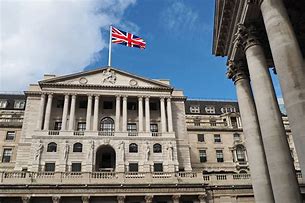The Bank of England paused its long run of interest rate hikes on Thursday as the British economy slowed, but it warned that a recent drop in inflation should not be taken for granted.

A day after a surprise deceleration in Britain’s rapid price increase, the Bank of England’s Monetary Policy Committee voted 5-4 to hold the Bank Rate at 5.25%.
Rates were raised to 5.5% by four members: Jon Cunliffe, Megan Greene, Jonathan Haskel, and Catherine Mann.
The Bank of England did not raise borrowing costs for the first time since December 2021.
“There are increasing signs of some impact of tighter monetary policy on the labor market and on momentum in the real economy more generally,” the MPC said in a statement.
It reduced its prediction for economic growth in the July-September period to 0.1% from 0.4% in August, citing significant signs of deterioration in the housing sector.
The Bank of England predicted that growth for the rest of the year would be less than previously predicted.
It observed that record growth in employees’ pay, which had been a major concern for the central bank, was not supported by other labor-market indicators, implying that policymakers anticipated it to wind down shortly.
“CPI inflation is expected to fall significantly further in the near term, reflecting lower annual energy inflation, despite the renewed upward pressure from oil prices,” said the Bank of England.
However, it stated that service inflation was projected to continue high.
The Bank of England’s decision to halt rate hikes came a day after the Federal Reserve of the United States likewise decided to put borrowing costs on hold. The European Central Bank boosted interest rates last week but said it might be the last for a while.
The MPC maintained its willingness to hike borrowing prices again if necessary.
“Further tightening in monetary policy would be required if there were evidence of more persistent inflationary pressures,” the statement said, and it reiterated the guidance that monetary policy would be “sufficiently restrictive for sufficiently long” to return inflation to the 2% target, which was 6.7% in August.
Governor Andrew Bailey and other MPC members recently signaled that the Bank of England was on the verge of suspending its rate hike cycle, but they also highlighted that borrowing costs would likely remain high in order to keep inflationary pressures at bay.
In a second statement issued on Thursday, Bailey praised the recent drop in inflation and predicted that it would continue to fall. “But there’s no room for complacency,” he explained. “We need to be sure inflation returns to normal and we will continue to take the decisions necessary to do just that.”
The MPC resolved to accelerate its program to reduce the central bank’s huge stockpile of government bonds, which it accumulated over the previous decade and a half as it worked to lead the economy through the global financial crisis and the coronavirus outbreak.
The stockpile will be decreased by 100 billion pounds over the following 12 months – through a combination of sales and allowing bonds to expire – to a total of 658 billion pounds, the BoE said, faster than the previous year’s reduction of 80 billion pounds.

